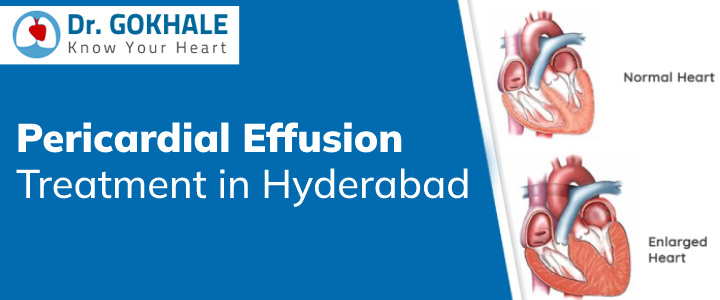What is Pericardial Effusion?
Herat is surrounded by a fibrous sac called the pericardium which consists of two thin layers with a little fluid between them. The purpose of this layer is to smoothen the friction between these layers whenever the heart expands. However, in rare cases, this fluid accumulates and fills the space around the heart making it difficult for proper expansion.
Insufficient expansion cause blood circulation problems as the fluid are deterred to and fro the blood. In some cases, this build-up of fluid happens quickly and in others, it can happen gradually over time. The condition is termed chronic when this fluid build-up happens more than once.
But what causes Pericardial Effusion?
According to the best heart surgeon in Hyderabad, Dr Alla Gopala Krishna Gokhale, various medical conditions can trigger pericardial effusion. This includes cancer, infection, inflammation problems, injury, metabolic problems or even radiation.
Symptoms of Pericardial Effusion:
Symptom types of pericardial effusion can be classified into three categories: Mild, severe and very severe effusions. More often than not mild pericardial effusion doesn’t show up any symptoms except the condition that is causing the pericardial effusion in the first place.
Chest pain, fainting, nausea, shortness of breath, increased heart rate and swelling of hands and legs are often noticed in severe pericardial effusion cases. Pale and clammy skin, reduced urine output, weakness, cool arms and legs are noticed in very severe cases.
What is the treatment for Pericardial Effusion?
The treatment for pericardial effusion depends on the severity of the symptoms, age and general health of the patient. If the condition is not severe, continuous monitoring with echocardiograms, pain medication and treatment for the cause of the condition is used by heart surgeons.
In case of severe pericardial effusion, an interventional cardiologist or heart surgeon in Hyderabad drains the built-up fluid using a procedure called Pericardiocentesis. “Every patient may not be suitable for Pericardiocentesis. In some cases a small piece of the pericardium is removed to drain the fluid and prevent further build-up”, says the best cardiothoracic surgeon in Hyderabad, Dr Alla Gopala Krishna Gokhale, who is renowned for heart transplantation in Hyderabad.
The recovery after the treatment for pericardial effusion in Hyderabad depends on the procedure performed. While Pericardiocentesis needs only a day or two, a pericardial window will need at least a few days of stay in hospital.
As always the best way out of pericardial effusion is to reduce its chances in the first place. A heart-healthy diet, exercise and reduced intake of alcohol and regular consultation of a heart specialist (for patients) is the way ahead to prevent pericardial effusion.
 Ask Doctor
Ask Doctor
